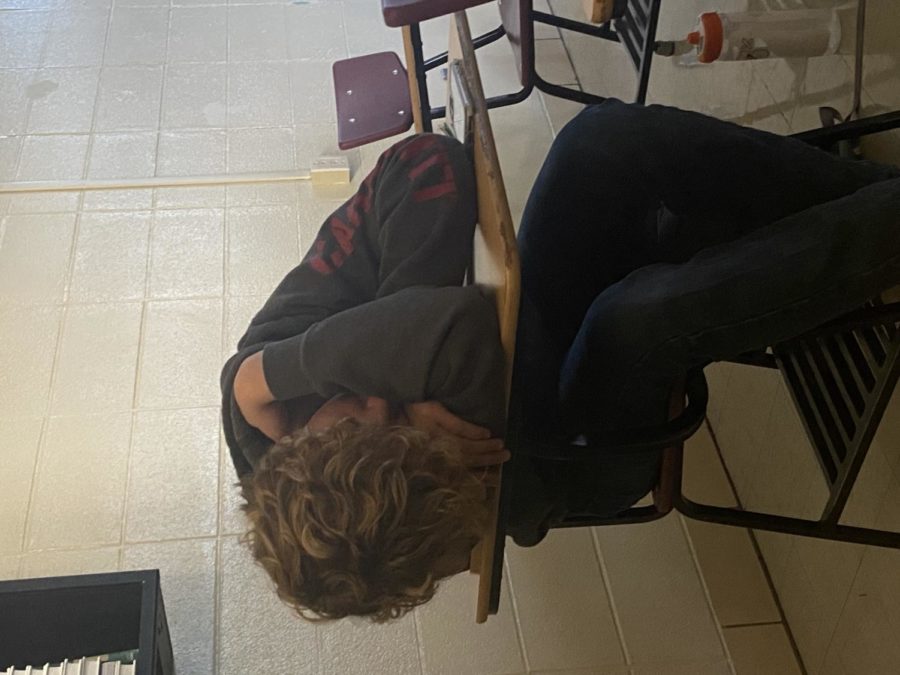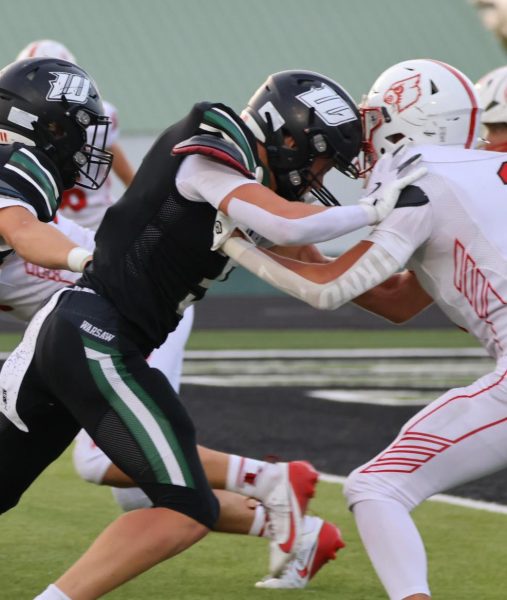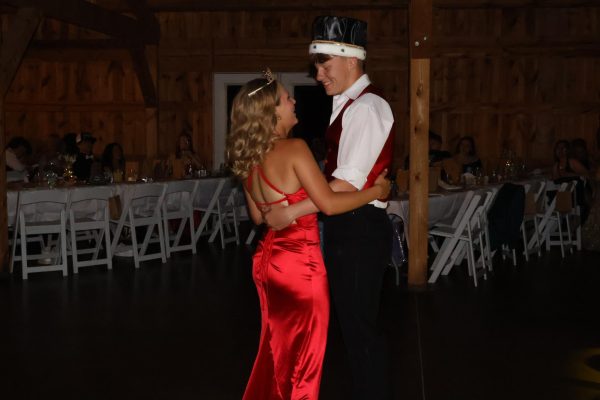Students report negative effects from lack of sleep
Freshman Kendall Bagley sleeps in his history class Bagley had reported that he got home late the night before and was tired the next day.
Sleep is a very important factor in teenagers’ lives and many teens do not get enough of it.
The American Academy of Sleep Medicine has recommended that children aged 6–12 years should regularly sleep 9–12 hours per 24 hours and teenagers aged 13–18 years should sleep 8–10 hours per 24 hours. Most high school students are not getting the recommended 8-10 hours of sleep per night.
According to a Wildcat survey, 49 out of 102 students and faculty who responded (48 percent) said they get 7 to 9 hours of sleep a night and 41 out of 102 students and faculty (40.2 percent) get only an average 4-6 hours of sleep a night. The survey also found that seven (6.9 percent) get three or fewer hours of sleep a night and 5 (4.9 percent) get more than ten hours of sleep a night.
Many people stated that the reason they can not fall asleep is because of their phones and televisions. They feel that they need to unwind at night and relax.
“Most nights, I get on my phone or watch TV and stay up for an hour or two doing that,” sophomore Laney Arrnett said.
Many students said that the reason they don’t get the recommended amount of sleep is due to insomnia.
“I usually struggle to fall asleep at night and try to be in bed by 10:30. I end up falling asleep, but it feels like I’ve been awake the whole night because I’m in and out of sleep,” junior Jazzmyn Swisher said.
According the to survey, 28 respondents out of the 102 surveyed, go to bed between 9 p.m. and 10 p.m., 26 between 10 p.m. and 11 p.m., 24 between 11 p.m. and 12 a.m., 16 between 12 a.m. and 2 a.m., 7 before 9 p.m. and 1 reported going to bet at 2 a.m. or later.
Students should take sleep more seriously. Teachers have noticed students being tired and falling asleep in their class.
“Students fall asleep in my class due to lack of sleep, because they are staying up doing homework or playing video games,” Science and Physical Education Teacher Laurel Larimore said.
“My first hour seems tired. I think they’re tired because they don’t go to bed until midnight or later,” Health and Lifetime Sports Teacher Johnny Eierman said.
Not getting enough sleep affects how many people feel the next day.
“Well, if I don’t get enough sleep, I get very mean and cranky. I think my students would notice if I came in to teach with lack of sleep,” English I and II Teacher Paige McKinsey said. Getting a good night of sleep makes you feel more motivated and all around better the next day.
Lack of sleep can lead to many health issues. According to verywellhealth.com sleep helps the body remove harmful waste material, and when someone doesn’t get enough sleep, it is believed that these toxins could damage the body (including brain function) over the long term.
Many students and faculty find sleep very important.
“I think I get a pretty good amount of sleep. I am kind of a sleep freak. I literally track my REM cycles,” McKinsey said.
“It’s Important to me because if I don’t get a good amount of sleep I’m grumpy or on edge that whole day,” senior Nora McMillin said.
There are many different ways for students and faculty to get more sleep.
“I think if anyone is looking for a way to get more sleep, download an app that helps you track the exact amount of time you are sleeping. Make sure you sleep the same amount of time each night. It helps a lot,” McKinsey said.

Senior Keira Mostaffa is in her fourth year of the Wildcat news production and second year of the Wildcat yearbook. In Mostaffa’s first year on staff,...





